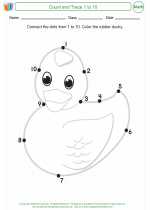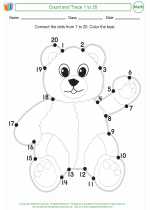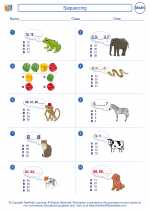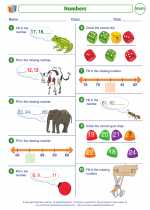Constants
In mathematics, a constant is a value that does not change. It is a fixed value that remains the same throughout a mathematical expression, equation, or problem. Constants are used to represent specific and unchanging quantities in various mathematical operations.
There are different types of constants, including:
- Numeric Constants: These are specific numerical values, such as 3, 5, 10, or π (pi).
- Physical Constants: These are constants that represent physical quantities, such as the speed of light (c) or the gravitational constant (G).
- Mathematical Constants: These are constants that arise in mathematical formulas and calculations, such as the base of natural logarithms (e) or the imaginary unit (i).
Constants are often denoted by symbols or letters, and they are typically used to simplify mathematical expressions and make them more concise. In algebraic equations, constants are represented by fixed values and do not have variables attached to them.
For example, in the equation y = 2x + 3, the constant term is 3, as it does not change based on the value of x.
Understanding constants is important in various mathematical concepts, including algebra, geometry, calculus, and physics. They play a crucial role in formulating mathematical laws, theories, and principles.
Overall, constants provide a stable and unchanging foundation for mathematical calculations and are essential in solving a wide range of mathematical problems.
.◂Math Worksheets and Study Guides First Grade. Sequencing

 Activity Lesson
Activity Lesson
 Activity Lesson
Activity Lesson
 Activity Lesson
Activity Lesson
 Worksheet/Answer key
Worksheet/Answer key
 Worksheet/Answer key
Worksheet/Answer key
 Worksheet/Answer key
Worksheet/Answer key
 Worksheet/Answer key
Worksheet/Answer key
